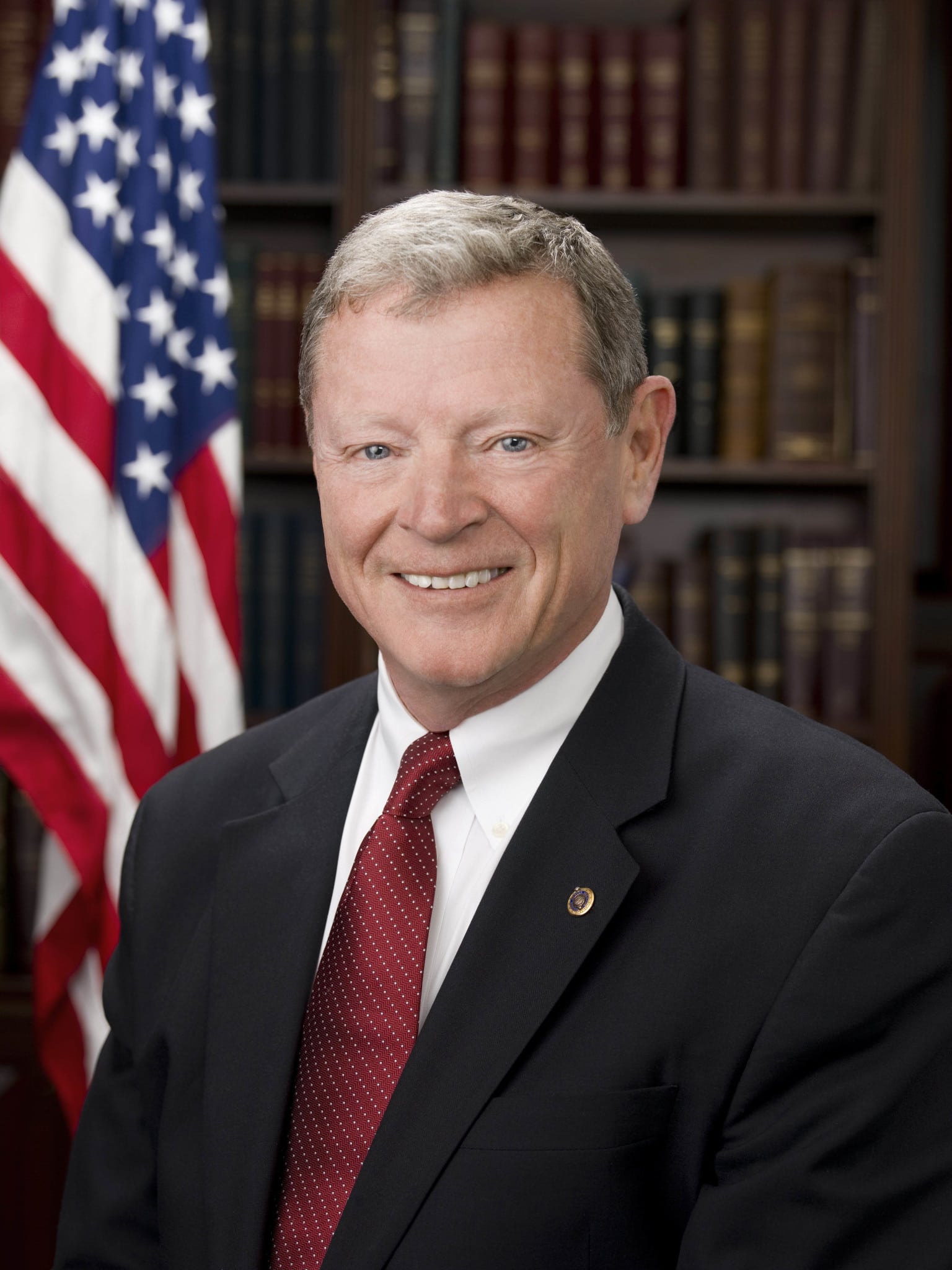
Celebrating what he called the end of the era of overregulation under the Obama administration, Sen. Jim Inhofe (R-Okla.) suggested Thursday that the incoming Trump administration could launch with the revival of Congressional Review Act legislation against existing executive actions.
The Senate attempted to use the CRA to overturn the Obama administration’s Clean Power Plan, carbon emissions standards for new existing coal-fired power plants. The legislation, in the form of two resolutions, one against the new source rule and one against the existing sourcing, passed the Senate in November 2015 by a vote of 52-46 with three members of each party crossing the aisle. Democratic Sens. Heidi Heitkamp (N.D.), Joe Donnelly (Ind.), and Joe Manchin (W.Va.) voted in favor of the resolutions, while Republican Sens. Mark Kirk (Ill.), Kelly Ayotte (N.H.), and Susan Collins (Maine) voted against the measures.
“We passed CRAs on all these overregualtions. The problem is the president vetoed it, and then we didn’t have the votes to override a veto because of the discipline of the Democrats,” Inhofe said during a keynote presentation at an event hosted at the Heritage Foundation.
The Congressional Review Act, which enables Congress to overturn executive actions, has only been successful once, undoing in 2001 a rule promulgated by the Occupational Safety and Health Administration (OSHA) requiring employers to take certain measures to reduce ergonomic injuries in the workplace. However, with Republican Donald Trump soon to be in the White House, GOP majorities in both chambers of Congress, and presumably very soon a right-leaning Supreme Court, it may very well be a viable option early in the new administration.
The Clean Power Plan was enacted too long ago to be targeted by the CRA again, as the act allows Congress only 60 days to act after a rule has been finalized. However, because the 60-day rule counts only days that Congress is in session, any rules finalized and submitted to Capitol Hill after May 30 could be reviewed by a new Congress and sent to Trump. According to a Nov. 17 memo from the Congressional Research Service, nearly 50 new rules are subject to the CRA at the beginning of the Trump presidency.
Rules that could be targeted with the CRA include: the Environmental Protection Agency’s Standards of Performance for Municipal Solid Waste Landfills; EPA emission guidelines and compliance times for municipal solid waste landfills; the Interior Department’s oil and gas and sulfur operations on the outer continental shelf–requirements for exploratory drilling on the Arctic outer continental shelf; the EPA’s oil and natural gas sector emission standards for new, reconstructed, and modified sources; and the Department of Energy’s energy conservation standards regulations for battery chargers and for dehumidifiers.
Trump also pledged during his campaign to withdraw the U.S. from the international Paris Agreement on climate change. More recently, the president-elect has backpedaled on some of these commitments, telling The New York Times in late November that he’s keeping an “open mind” about the accord.
He also recently met with climate activist and former Vice President Al Gore, as well as actor and activist Leonardo DiCaprio.
Inhofe warned against reading too much into Trump’s meeting with Gore this week. “Don’t think that Al Gore is resurrected, he’s not. Just because he showed up, it shows that we have a guy coming in as president who will talk to anybody.”
Trump has also been talking to Inhofe for several months. “I’ve been kind of advising him … on the things that are of the military nature, and we’ve got to do it. Why should defending America be a partisan issue? And it shouldn’t, but it is because the administration has a policy with what’s happened to military, the disarming of America, in the last eight years, you can’t put any more money into the military unless, this is Obama talking, unless you put an equal amount in the social programs,” Inhofe said. “Well, that’s going to change.”